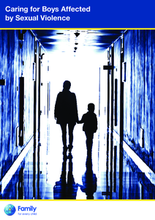Displaying 581 - 590 of 1343
In this chapter children’s rights and state obligations in relation to alternative care are presented, with reference to the UN Alternative Care Guidelines and the general comments and concluding observations of the UN Committee on the Rights of the Child.
Launching on International Youth Day, 12 August 2018, the Global NextGen Index uses annual scorecards to evaluate 22 states on their progress to implement alternatives to child immigration detention.
This Research Handbook is an innovative tool which will be of use not only for students and scholars interested in migration displacement, immigration, and human rights, but also for policymakers and others actively engaged in the migrant and refugee rights advocacy community.
This chapter elaborates on the specifics of these two limbs of Article 37 Convention on the Rights of the Child, the core human rights provision for the protection of children deprived of liberty.
The authors of this paper aimed to examine the available evidence on the impact of overseas parental migration on healthcare seeking for common childhood illnesses and the nutritional status of children left-behind under five years of age.
Nationally representative, population-based data from rounds four and five of the Multiple Indicator Cluster Surveys (MICS) and four to eight of the Demographic and Health Surveys (DHS) from 61 low- and middle-income countries were used to estimate prevalence and socio-economic factors associated with leaving children under five years old home alone or under the care of another child younger than 10 years of age.
This webinar, from the U.S. National Child Traumatic Stress Network, as part of its Childhood Traumatic Grief e-learning series, focuses on helping providers, current caregivers, and others understand and recognize the effects of Traumatic Separation in immigrant children of different ages, understand immigrant children’s prior trauma experiences, and provide practical suggestions for how to support immigrant children who have been separated from parents and siblings.
This statement, submitted on behalf of the Scientific Advisory Group, Early Childhood of the Bezos Family Foundation, has been released in light of the policy of family separation of immigrant families at the U.S. border with Mexico and outlines the harmful impacts of the toxic stress of family separation on children's brain development and physical wellbeing.
In this article, the argument is made for having a positive error culture in child protection to improve decision‐making and risk management.
Family for Every Child examined the critical issue of sexual violence affecting boys through this global scoping study, Caring for Boys Affected by Sexual Violence.

